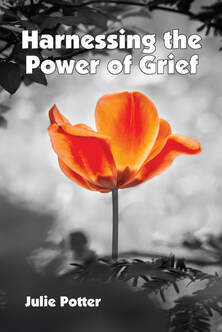|
We are learning that natural disasters do not stand alone. The fires in Canada affect all of us, particularly those who live on the East Coast of the US.
The earth's changing terrain and atmosphere are a source of fear: Fear that life will not be the same; Fear that things will get worse; Fear that we will forget, or deny, and will continue to live in the same way; Fear that this is the endgame, and that the end of a habitable earth will happen in our lifetime, not in a distant future. Fear that we won't make it. This sounds like grief. Grief is real, and is with us a lot these days. It is not a place that we get stuck in, but a process that we participate in. We identify what is going on, we deal with it in all the ways that we can, and we move forward into the future. Natural disasters help us to connect with one another. Use this current situation as a time to connect with family and friends, and even strangers. Some of the best human behaviors happen during sudden natural events. Reaching out helps others, and it can also help you. Don't be afraid of fear. Fear helps us to focus on what needs to be done. We need to clean up the planet. That's a big challenge. Free-flowing chronic fear will not help us, others or the planet. Find ways that you can help the planet as an individual - composting, using less plastic, turning off the lights, conserving resources, talking with others, voting for those who support positive climate change action. The energy that you put forth and the sense of helping that you feel, add to the good energy needed today. Remember that we are in trouble. It is easy to forget. Out of respect for the planet, for one another, and for future generations, remember. Let us search for and act upon solutions individually and collectively. Remember the solutions. Practice gratitude for our beloved Mother Earth. It is natural to think about your loved one. Thinking can intensify your grief. Here are some thought about thinking, and how you can harness its power.
Think. It is natural to think about your loved one - the memories you shared, the conflicts you had, some resolved, some not. It is natural that you will think about your loved one as you go through the rooms in your house, and the streets in your town. Every place has many reminders and many memories. It is natural to think about events leading up to the death and then the death and to think about the entire relationship. Each part of your relationship is included in your loss. In time, thinking about your loved one will bring healing, and times of joy too. Stop thinking. Grief takes a lot of energy. Taking breaks from your grief is helpful, and revitalizes you. Here are some ideas. Take a walk in Nature. Open a window, and take in breaths of fresh air. Meditate - a way to calm those thought waves. Write in your journal - yet another way to slow down your thinking. Breathe in deeply, and sigh it out. Go for a swim, or a jog. Rent a movie. Call a friend. Be with a friend. Go to a museum - viewing art can be healing. If you can't get to sleep, here are some ideas:
If you can't stay asleep and find yourself awake between the hours of 2 and 5 am, try sitting up in bed. When we are lying down, we are in a vulnerable position. Just sitting up gives us a different perspective, a different energetic feeling, and we can feel powerful, ready to:
Grief and all of its manifestations are part of the human design. Grief is very important and has the capability to uplift us, change us, and yes, unite us. When you go through your own individual grief process and when you come to the point where you can move on easefully in your life, you may not recognize that you are an inspiration to others in their own lives. This has been my experience, and I’d like you to know that your inner journey has an effect on others in your community. In my work, I provided bereavement support to newly widowed spouses. I would be uplifted by their courage. I would be intrigued by their search for meaning. I would be inspired by their ability to just put one foot in front of the other and live their lives.
The aloneness of grief makes grief hard. Even if you are in the same family, each of you will grieve differently. You are alone because you are unique. Yet, at the same time, you are not alone because we are all together. Many years ago, after my mother died, I wasn’t sure how I would make it. I remember driving down the street and noticing people in their cars and walking on the sidewalks. Many of them looked like they were of the age that probably their mothers had died, but they were driving along, walking along, and participating in life. If they could do it, I would, too. I had no idea who they were, but they inspired me to turn the corner and move through life with a little more cheerfulness and lightheartedness. None of those people knew I was watching them and noticing them. In that very alone moment for me, we were all together. May it be so for you! (page 189, Harnessing the Power of Grief) Why is it that the sun rising every day and setting every night is so beautiful to behold? Why is it that the moon's predictable phases inspire us? Why is it that the repetitious waves on the shore calm us? Rhythm.
These predictable rhythms are repetitious but not boring. Mohandas Gandhi said, "Monotony is the law of Nature. Look at the monotonous manner in which the sun rises. The monotony of necessary occupation is exhilarating and life giving (Duncan, R., ed., Gandhi, Selected Writings, 2005, p. 246)." Some would say that rhythm is life. Rocking, being held next to the heart comforts a baby. When you go to work, you are following a schedule. This can bring you comfort, even if you think your job is not the greatest. When you are in a state of upheaval, the dependable rhythms of life are disrupted. Your habitual way of living and habits of the heart have changed. Phone calls, visits, special shared events, the electronic buzz of emails and texts - these are a few of the dependable rhythms of relationships that change when a death occurs. Appreciate the rhythms in your life and begin to create new ones - maybe a daily walk, getting up at the same time each day, eating at the same time for meals. |
Archives
July 2023
Categories |
Buy Harnessing The Power Of Grief. You can purchase by clicking these links: Politics and Prose, Amazon, Barnes & Noble.
Contact
COPYRIGHT © 2022 Julie Potter, All Rights Reserved
Site design by Jocelyn Kuritsky
Site design by Jocelyn Kuritsky




